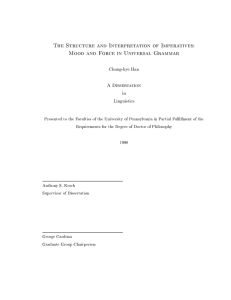Gender and Speech in Roman Comedy Recent work on Roman
advertisement
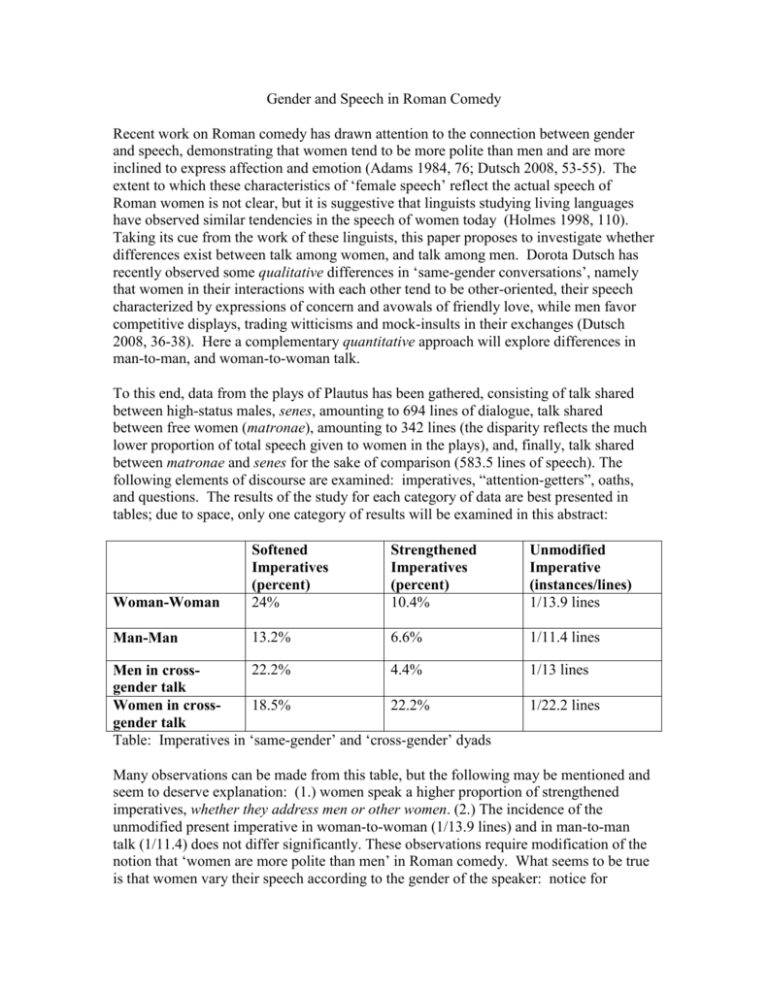
Gender and Speech in Roman Comedy Recent work on Roman comedy has drawn attention to the connection between gender and speech, demonstrating that women tend to be more polite than men and are more inclined to express affection and emotion (Adams 1984, 76; Dutsch 2008, 53-55). The extent to which these characteristics of ‘female speech’ reflect the actual speech of Roman women is not clear, but it is suggestive that linguists studying living languages have observed similar tendencies in the speech of women today (Holmes 1998, 110). Taking its cue from the work of these linguists, this paper proposes to investigate whether differences exist between talk among women, and talk among men. Dorota Dutsch has recently observed some qualitative differences in ‘same-gender conversations’, namely that women in their interactions with each other tend to be other-oriented, their speech characterized by expressions of concern and avowals of friendly love, while men favor competitive displays, trading witticisms and mock-insults in their exchanges (Dutsch 2008, 36-38). Here a complementary quantitative approach will explore differences in man-to-man, and woman-to-woman talk. To this end, data from the plays of Plautus has been gathered, consisting of talk shared between high-status males, senes, amounting to 694 lines of dialogue, talk shared between free women (matronae), amounting to 342 lines (the disparity reflects the much lower proportion of total speech given to women in the plays), and, finally, talk shared between matronae and senes for the sake of comparison (583.5 lines of speech). The following elements of discourse are examined: imperatives, “attention-getters”, oaths, and questions. The results of the study for each category of data are best presented in tables; due to space, only one category of results will be examined in this abstract: Woman-Woman Softened Imperatives (percent) 24% Strengthened Imperatives (percent) 10.4% Unmodified Imperative (instances/lines) 1/13.9 lines Man-Man 13.2% 6.6% 1/11.4 lines 22.2% 4.4% Men in crossgender talk 18.5% 22.2% Women in crossgender talk Table: Imperatives in ‘same-gender’ and ‘cross-gender’ dyads 1/13 lines 1/22.2 lines Many observations can be made from this table, but the following may be mentioned and seem to deserve explanation: (1.) women speak a higher proportion of strengthened imperatives, whether they address men or other women. (2.) The incidence of the unmodified present imperative in woman-to-woman (1/13.9 lines) and in man-to-man talk (1/11.4) does not differ significantly. These observations require modification of the notion that ‘women are more polite than men’ in Roman comedy. What seems to be true is that women vary their speech according to the gender of the speaker: notice for example that the incidence of unmodified imperatives goes up when women speak with other men (1/22.2 lines), but down when they speak with members of the same sex (1/13.9 lines). The other categories of data mentioned above will be examined in order to show that the addressee should be taken into account when making claims about the characteristics of ‘female speech’. 493 Words Works Cited Adams, James N. “Female Speech in Latin Comedy.” Antichthon 18 (1984): 43-77. Dutsch, Dorota, M. Feminine Discourse in Roman Comedy: On Echoes and Voices. Oxford: Oxford University Press, 2008. Holmes, Janet. “Complimenting – a Positive Politeness Strategy.” In Language and Gender: a Reader, ed. Jennifer Coates. Oxford: Blackwell, 1998.
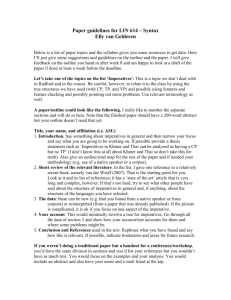


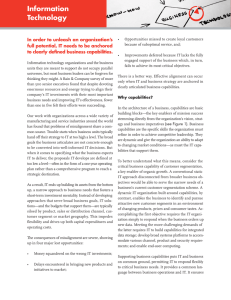
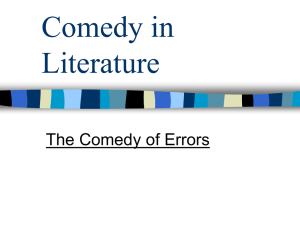


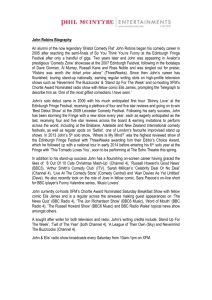
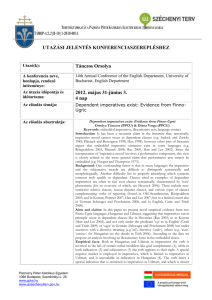
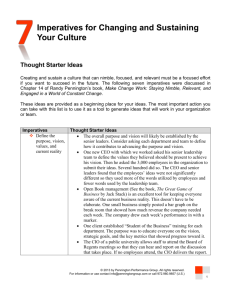

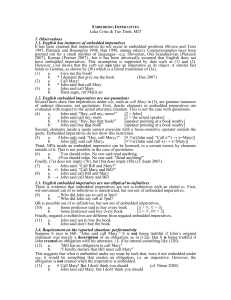
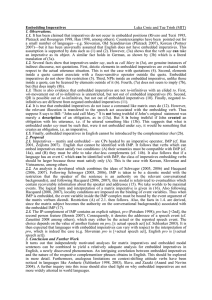
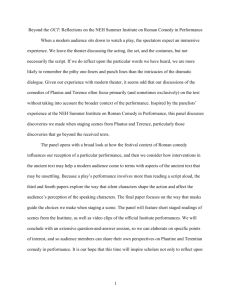
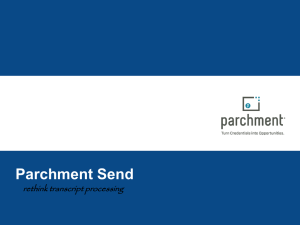
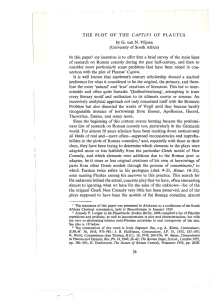
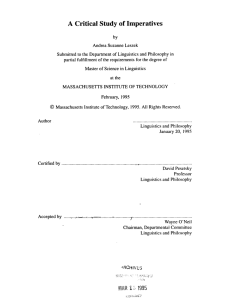
![Spinozistic Moral Imperatives [draft of a draft of a draft] Michael](http://s3.studylib.net/store/data/007162147_2-65eda3573329700cc44fcad90f1a3110-300x300.png)
